Check out our handpicked selection of the finest Free Prescription Templates, all thoughtfully crafted in MS Word, and they’re exclusively for neurologists. These templates are here to make your medical documentation a breeze. With just a few clicks, you can whip up sleek prescription pads that are a perfect fit for your neurology practice. Don’t wait; grab them now to supercharge your patient care and documentation process.
The brain is the command center that guides and runs our nervous system and coordinates movement, thoughts, emotions, memories, etc. It is one of the most basic goals of human beings to maintain the health of their brains for a healthy life. The term neurology refers to the study related to nerves, the nervous system, and the brain in general.
Medical physicians deal with neurology and the diagnosis, treatment, study, and research of the disorders and ailments of the brain and the nervous system in particular. They also treat conditions related to the spinal cord. When someone is experiencing difficulty in performing basic mental and cognitive processes such as thinking, speaking, etc. they consult neurologists.
A neurologist specializes in treating disorders of the central nervous system i.e., the brain and spinal cord while there are others responsible for treating the peripheral nervous system i.e., the eyes, ears, nose, skin, etc.

[wpdm_package id=’84’]

[wpdm_package id=’90’]

[wpdm_package id=’92’]

[wpdm_package id=’94’]

[wpdm_package id=’95’]
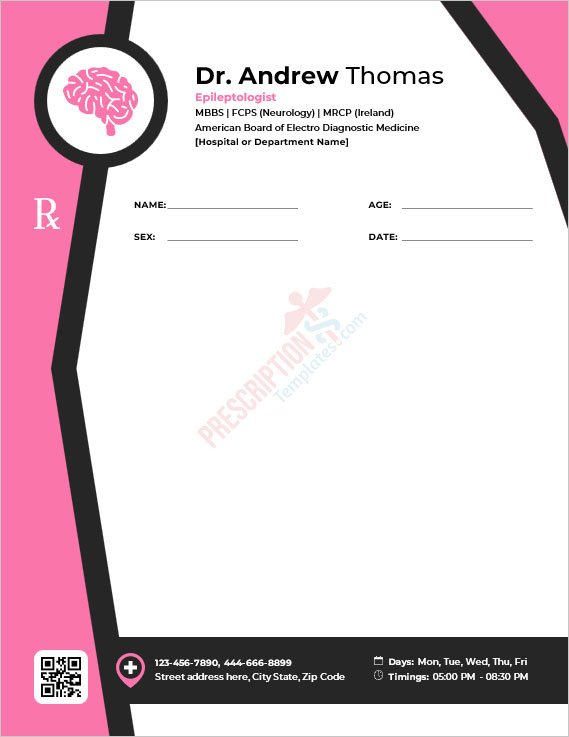
[wpdm_package id=’2525′]
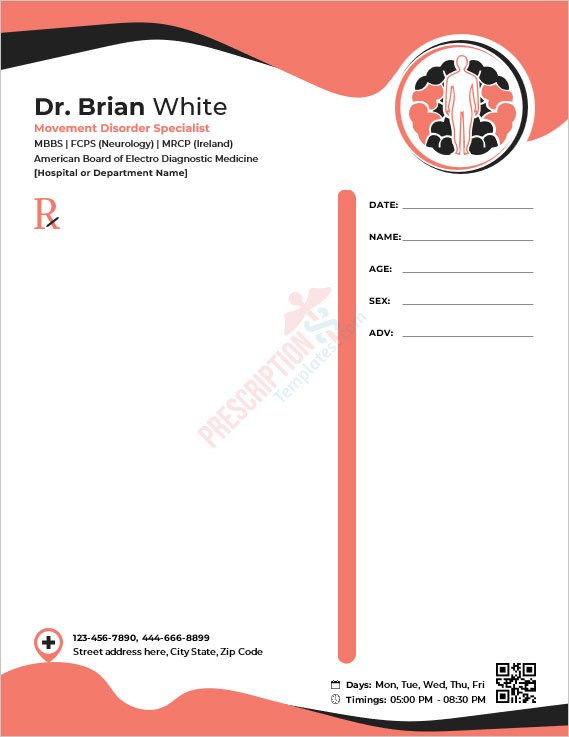
[wpdm_package id=’2530′]
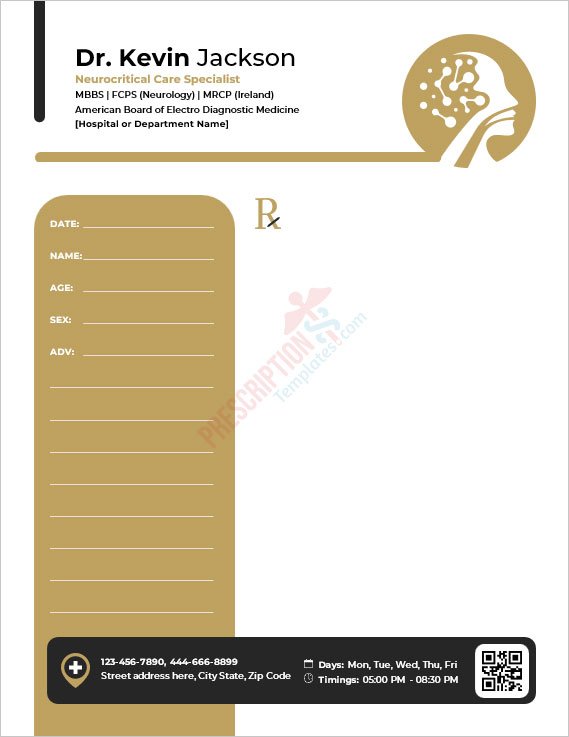
[wpdm_package id=’2535′]
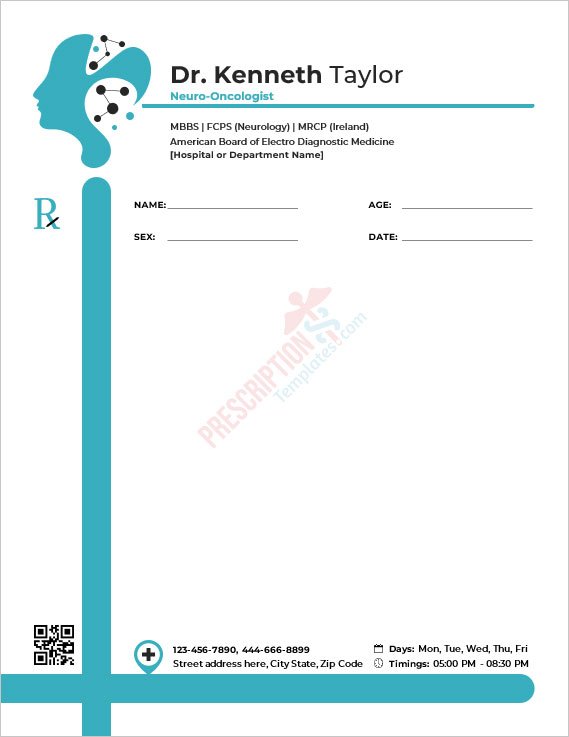
[wpdm_package id=’2538′]
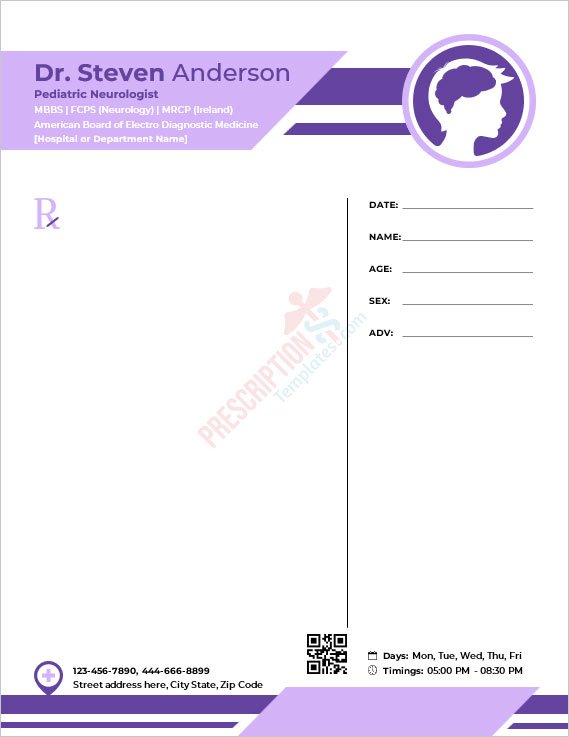
[wpdm_package id=’2542′]
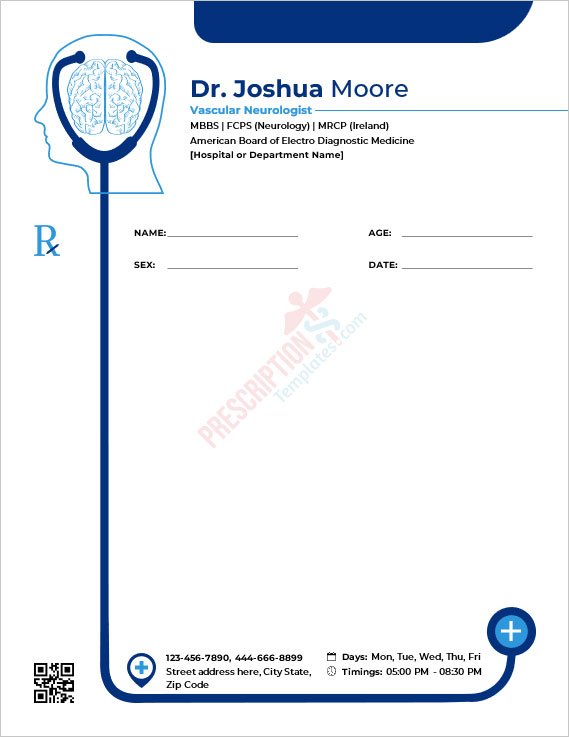
[wpdm_package id=’2546′]
Explore the step-by-step guide in the video below to design your Prescription Pad using MS Word.
These are a few common diseases that a neurologist is an expert in treating:
There are a few conditions that make it inevitable for you to consult a brain specialist or a neurologist as soon as possible. Even a slight delay or ignorance might lead to ugly consequences for your health. But how can you know if these conditions require you to see a neurologist or another doctor? We’ve pointed down a few conditions for you to recognize and understand that it’s time to pay a neurologist a visit:
Once you’ve ended up at the neurologist’s he will ask you questions on your condition, medical history, family history, symptoms, etc., and then examine things like your movement, mental soundness, hearing, speaking, and sensory responses. Further tests are taken to analyze if you need therapy or surgery to rule out the disease.
← Previous Article
Dermatologist’s Prescription Templates for Microsoft Word